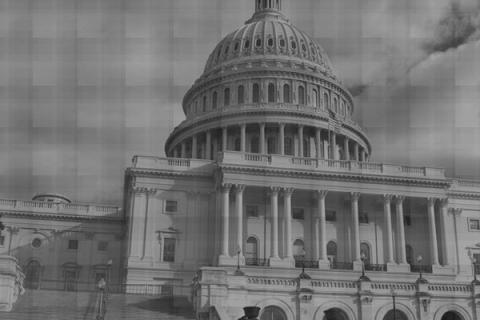Most Americans knew Mike Wallace for his work on CBS’ 60 Minutes, and because of him and his remarkably talented colleagues that hour on Sunday nights became the most important hour in network television history.
Mike Wallace’s passing Sunday at 93 reminds those of us of a certain generation the great television/radio journalists of our time – David Brinkley, Chet Huntley, Walter Cronkite, Eric Sevareid, Howard K. Smith, Edward R. Murrow, Edward P. Morgan, Frank Reynolds, Harry Reasoner, and now Mike Wallace – are gone, and the probability is we will never again see their equals.
Many of the great came out of print journalism and had their baptism by fire during WWII. It gave them a maturity and perspective too many of today’s journalists, especially on television, simply do not have. Of course it isn’t their fault, not having a background like those named above, but too many of today’s young journalists lack curiosity, which drives one to learn about things other than your next news assignment. (I can’t tell you how many times television journalists, in particular, have shown up at press conferences I was involved clueless as to why they were there.)
My past role in government and as a U.S. Senate press secretary, provided me with the opportunity to know, among these immortals of broadcast journalism, Mr. Brinkley, Mr. Cronkite, Mr. Sevareid, and Mr. Wallace, but it was Mike Wallace I knew best.
In 1966, the last of Pat Brown’s eight-years as governor of California – and no governor in California history ever had a greater run than Pat Brown – I would see Mike Wallace from time-to-time in my capacity as administrative assistant to Lt. Governor Glen Anderson.
On one of those occasions at a Hollywood party, curious at seeing him in what I deemed his standard attire, white button down shirt, black knit tie, and gray sports coat, I asked him a question I’m quite certain no one had ever asked Mike Wallace before, “Why do you always dress the same?” His answer, “Because it’s one less decision I have to make when I get up.
Many years later I was in New York City and was invited to a party at George Plimpton’s East Side apartment. The occasion was the annual birthday party he gave in memory of his mother. I had not seen Mike Wallace in several years but he and his wife were at Plimpton’s.
That night Mike Wallace was smartly dressed in a blue suit, with a designer shirt and an elegant tie. I reminded him of our conversation in Hollywood so many years before and asked why he had given up his “standard dress?” He turned to his wife and said, “She now dresses me.”
On another occasion, in Washington, DC, I was giving a luncheon on Capitol Hill in honor of George Plimpton. But before the lunch Plimpton and I saw a press conference being held on the east lawn of the Capitol and walked over. Walter Cronkite’s daughter, Kathy, Rosalind Carter, and Mike Wallace, were talking about the demons of depression and how its darkness had distressed their own lives and why legislative help was needed to help others in their fight to end this curse.
When it ended I invited Mike to my luncheon and he happily accepted. There was one small problem; he had forgotten he was scheduled to have lunch with a senator in the Senate Dining Room and the senator was not pleased, so Mike Wallace reluctantly left our table to sit at the senator’s. (Knowing the senator, Mike would have had more fun at ours; mostly because of Plimpton, one of the great storytellers of all time.)
When former U.S. Attorney Alan Bersin was superintendent of schools in San Diego I persuaded him a trip to New York to meet major journalists would serve his interest and that school district. He agreed and I set up a dinner with Ethan Bronner, then education editor of The New York Times (now the newspaper’s Jerusalem correspondent), Jon Meacham of Newsweek, the editor of George Magazine (the magazine published by John F. Kennedy Jr.), and Mike Wallace.
Bersin as school superintend was not a 60 Minutes story but Wallace had done a story when Bersin was U.S. Attorney in San Diego and was Attorney General’s Janet Reno’s so-called “border czar.” Efforts by Wallace and 60 Minutes to interview Bersin were unavailing and there was this memorable shot of Bersin riding off on horseback toward the setting sun, while the 60 Minutes crew left standing in the dusk. I thought it was time Wallace and Bersin met. (And, a friendship was established.)
Over the years Mike Wallace and I had many telephone conversations, sometimes exploring ideas for stories on 60 Minutes, but on other occasions I would simply call CBS News in New York to inquire as to his well being? If the great man was in he would unfailingly take my call and we would have, unfailingly, an engaging conversation (at least that’s how I remember them).
On one such occasion when we were discussing his growing up in Brookline, Massachusetts, and attending Brookline High, a school that produced some extraordinary graduates, including Mike Dukakis, our conversation was longer than normal. At its end, I said, “You know Mike Wallace, you are a really nice man.”
His response, “Please don’t tell anyone.”

